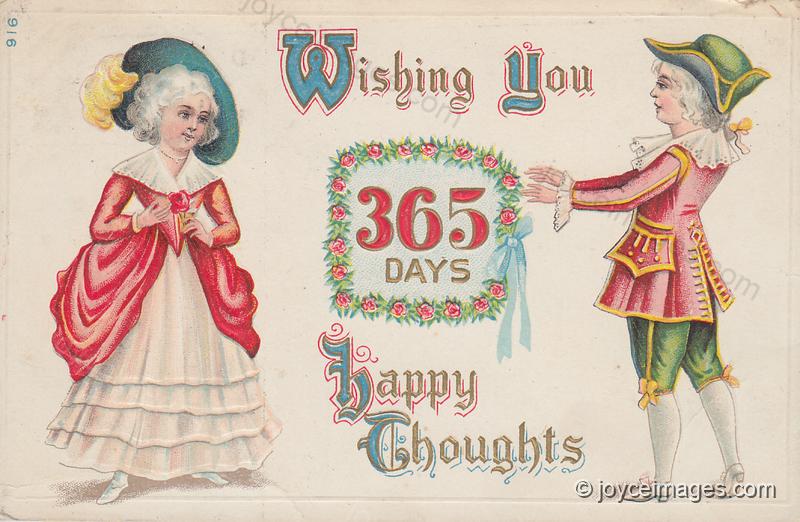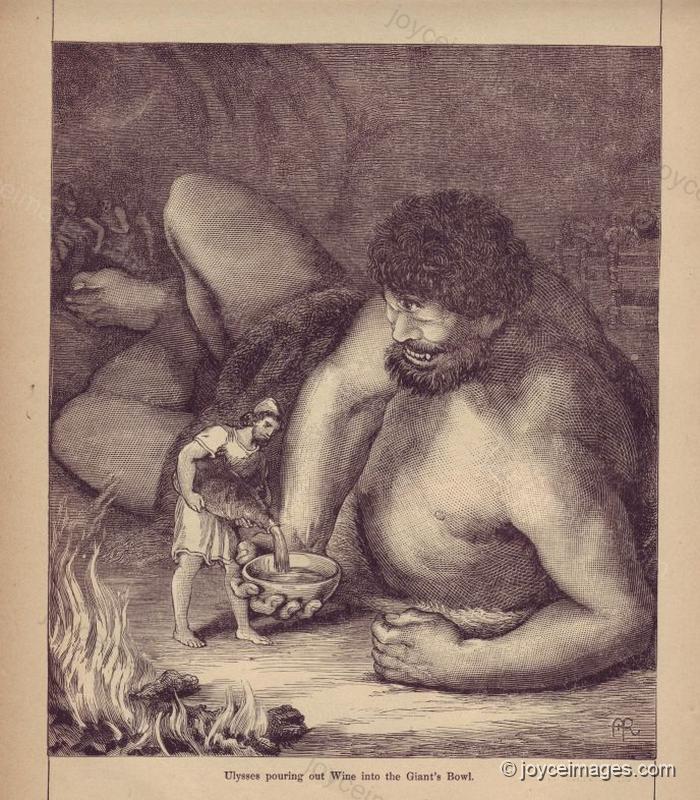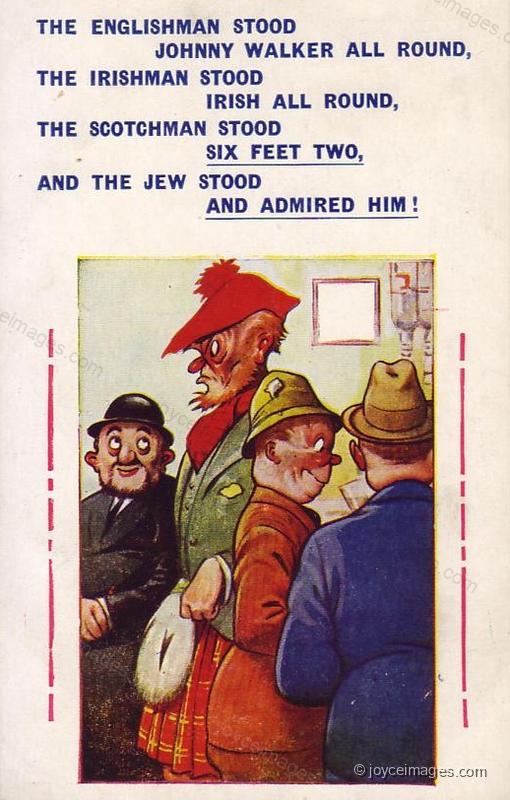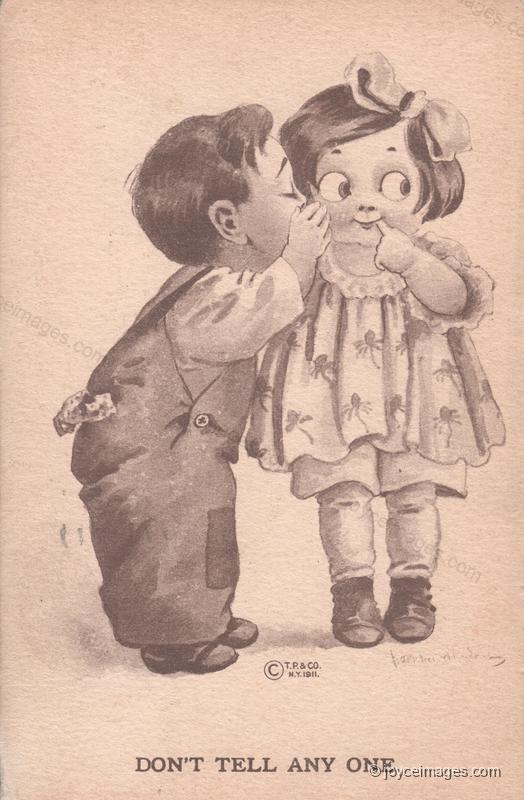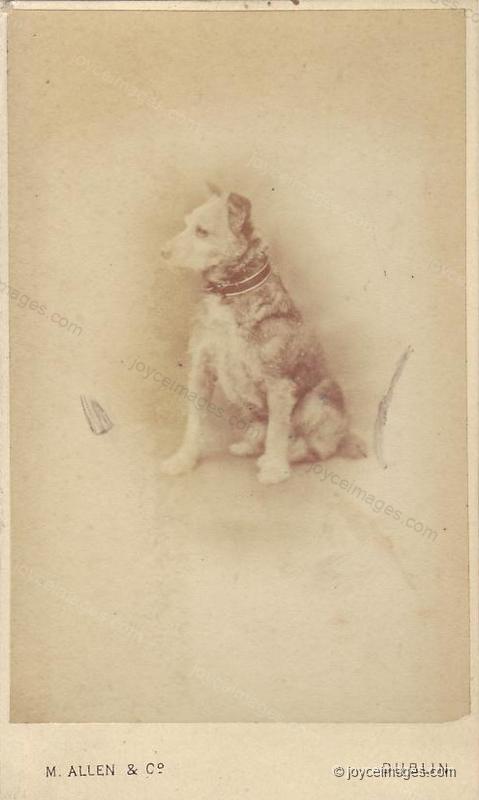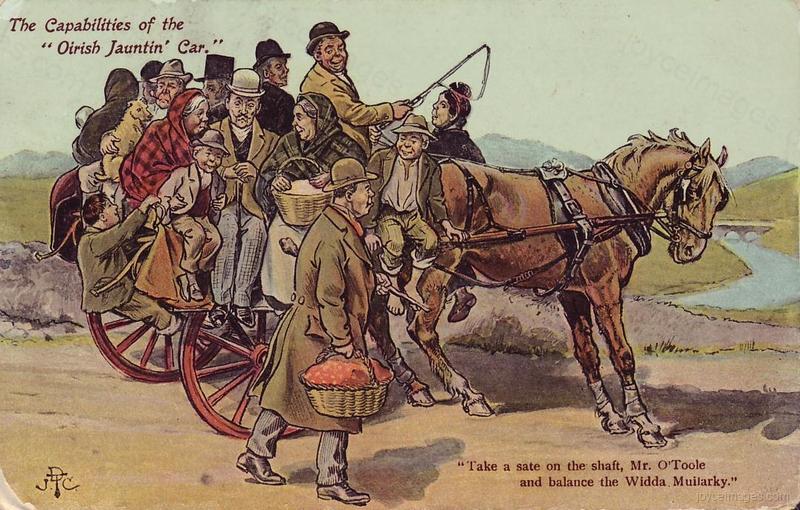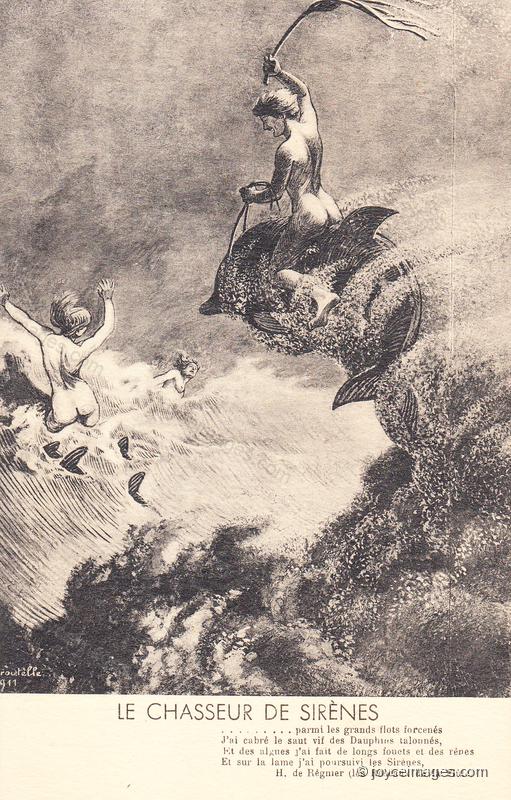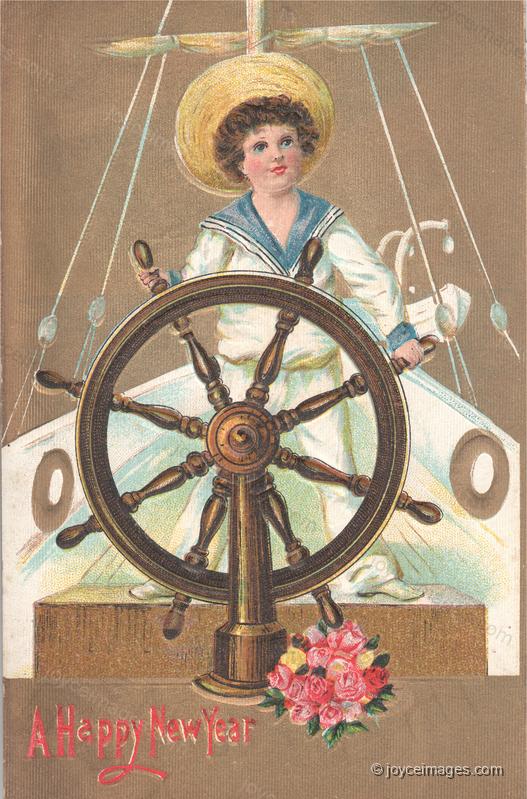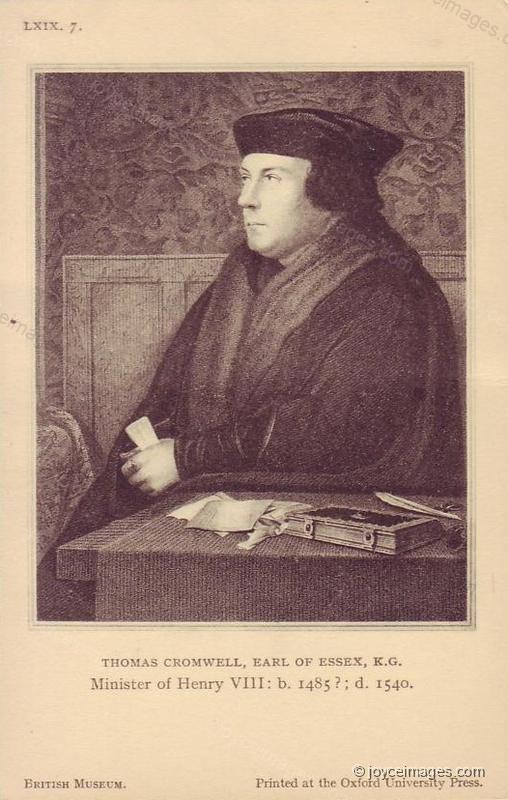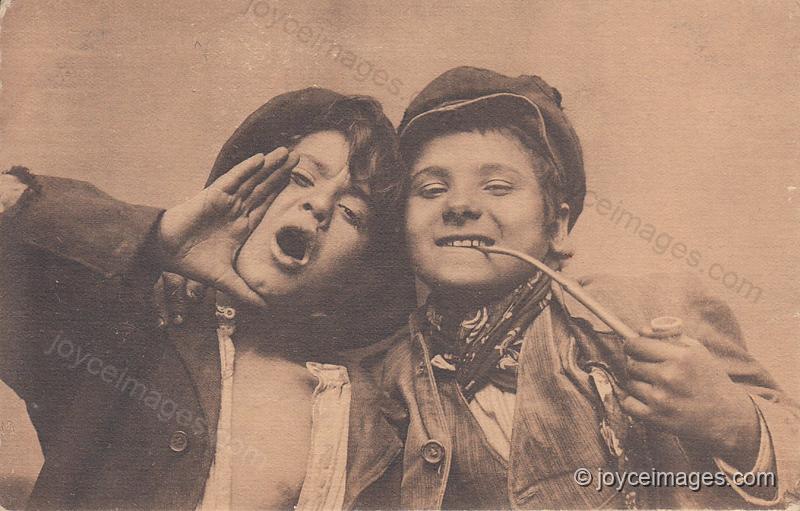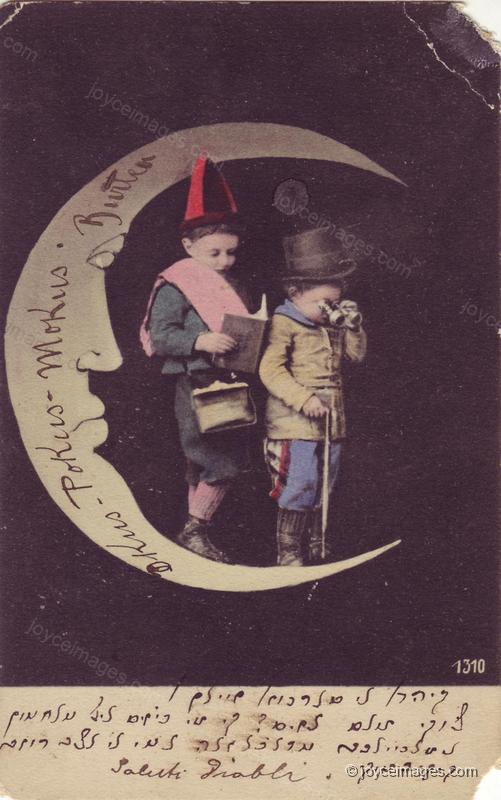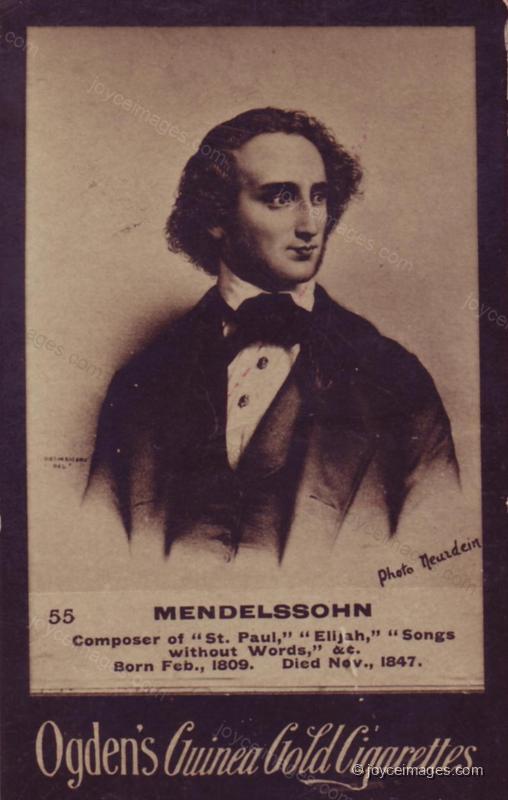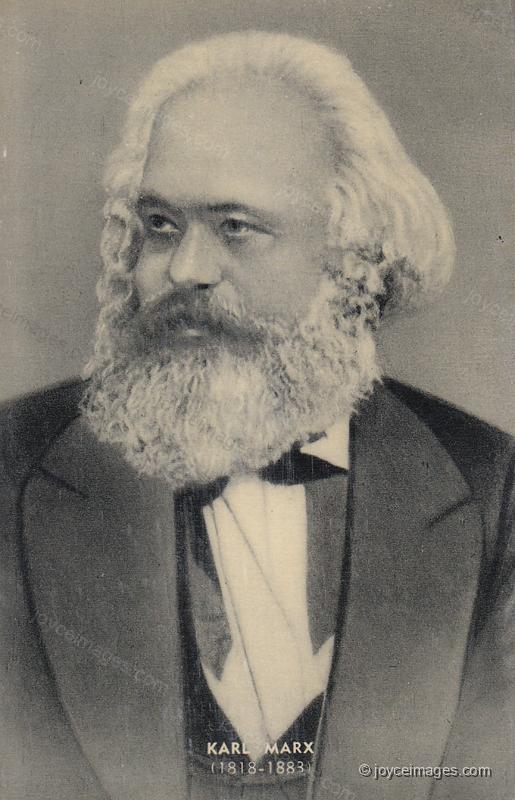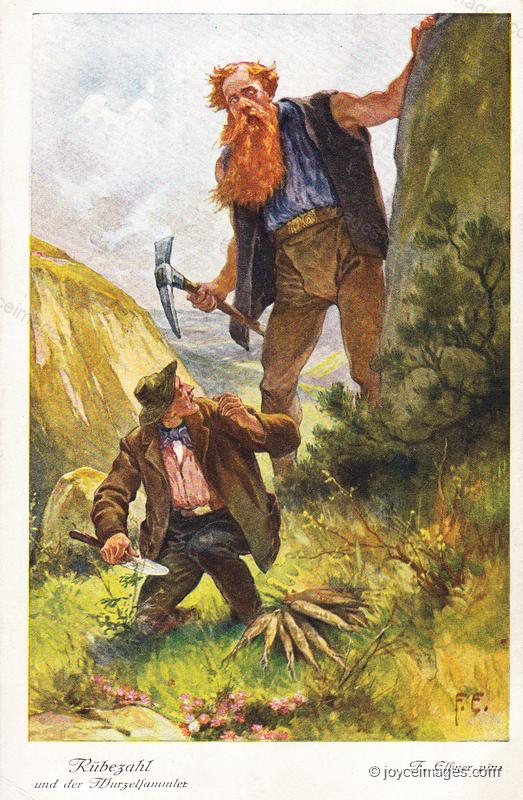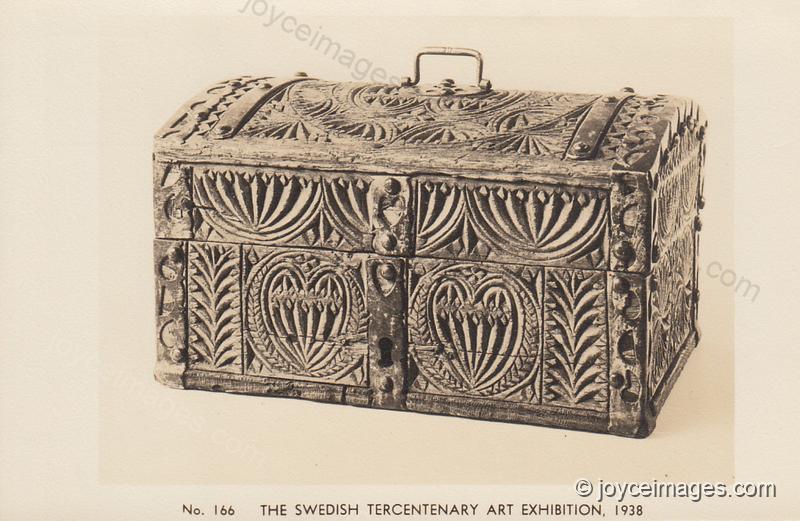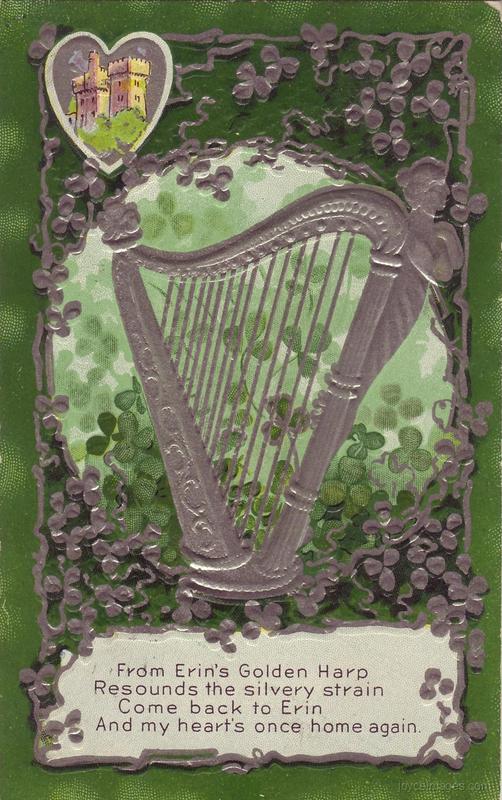"-- Right, says Ned, taking up his John Jameson. And butter for fish.
I was just looking around to see who the happy thought would strike when be damned but in he comes again letting on to be in a hell of a hurry.
-- I was just round at the courthouse, says he, looking for you. I hope I'm not ....
- -No, says Martin, we're ready." (U12.1753)
I was just looking around to see who the happy thought would strike when be damned but in he comes again letting on to be in a hell of a hurry.
-- I was just round at the courthouse, says he, looking for you. I hope I'm not ....
- -No, says Martin, we're ready." (U12.1753)
"Courthouse my eye and your pockets hanging down with gold and silver. Mean bloody scut. Stand us a drink itself." (U12.1759)
This engraving (1886) shows Ulysses pouring out wine into the Giant's Bowl.
This engraving (1886) shows Ulysses pouring out wine into the Giant's Bowl.
"Devil a sweet fear! There's a jew for you! All for number one. Cute as a shithouse rat. Hundred to five." (U12.1760)
"- Don't tell anyone, says the citizen.
- Beg your pardon, says he.
- Come on boys, says Martin, seeing it was looking blue. Come along now.
- Don't tell anyone, says the citizen, letting a bawl out of him. It's a secret." (U12.1762)
- Beg your pardon, says he.
- Come on boys, says Martin, seeing it was looking blue. Come along now.
- Don't tell anyone, says the citizen, letting a bawl out of him. It's a secret." (U12.1762)
"And he got them out as quick as he could, Jack Power and Crofton or whatever you call him and him in the middle of them letting on to be all at sea and up with them on the bloody jaunting car.
- Off with you, says Martin to the jarvey." (U12.1768)
- Off with you, says Martin to the jarvey." (U12.1768)
"The milkwhite dolphin tossed his mane and, rising in the golden poop the helmsman spread the bellying sail upon the wind and stood off forward with all sail set, the spinnaker to larboard. A many comely nymphs drew nigh to starboard and to larboard and, clinging to the sides of the noble bark, they linked their shining forms" (U12.1772)
"as doth the cunning wheelwright when he fashions about the heart of his wheel the equidistant rays whereof each one is sister to another and he binds them all with an outer ring and giveth speed to the feet of men whenas they ride to a hosting or contend for the smile of ladies fair. Even so did they come and set them, those willing nymphs, the undying sisters. And they laughed, sporting in a circle of their foam: and the bark clave the waves." (U12.1776)
"But begob I was just lowering the heel of the pint when I saw the citizen getting up to waddle to the door, puffing and blowing with the dropsy, and he cursing the curse of Cromwell on him, bell, book and candle in Irish, spitting and spatting out of him and Joe and little Alf round him like a leprechaun trying to peacify him." (U12.1783)
"And all the ragamuffins and sluts of the nation round the door and Martin telling the jarvey to drive ahead and the citizen bawling and Alf and Joe at him to whisht and he on his high horse about the jews and the loafers calling for a speech and Jack Power trying to get him to sit down on the car and hold his bloody jaw" (12.1796)
"a loafer with a patch over his eye starts singing If the man in the moon was a jew, and a slut shouts out of her:
- Eh, mister! Your fly is open, mister!
And says he:" (U12.1800)
- Eh, mister! Your fly is open, mister!
And says he:" (U12.1800)
"and Karl Marx and Mercadante and Spinoza. And the Saviour was a jew and his father was a jew. Your God.
- He had no father, says Martin. That'll do now. Drive ahead.
- Whose God? says the citizen.
- Well, his uncle was a jew, says he. Your God was a jew. Christ was a jew like me." (U12.1804)
- He had no father, says Martin. That'll do now. Drive ahead.
- Whose God? says the citizen.
- Well, his uncle was a jew, says he. Your God was a jew. Christ was a jew like me." (U12.1804)
"Gob, the citizen made a plunge back into the shop.
- -By Jesus, says he, I'll brain that bloody jewman for using the holy name. By Jesus, I'll crucify him so I will. Give us that biscuitbox here.
- -Stop! Stop! says Joe.
A large and appreciative gathering of friends and acquaintances from the metropolis and greater Dublin assembled in their thousands to bid farewell to Nagyaságos uram Lipóti Virag, late of Messrs Alexander Thom's, printers to His Majesty, on the occasion of his departure for the distant clime of Százharminczbrojúgulyás-Dugulás (Meadow of Murmuring Waters). (U12.1810)
- -By Jesus, says he, I'll brain that bloody jewman for using the holy name. By Jesus, I'll crucify him so I will. Give us that biscuitbox here.
- -Stop! Stop! says Joe.
A large and appreciative gathering of friends and acquaintances from the metropolis and greater Dublin assembled in their thousands to bid farewell to Nagyaságos uram Lipóti Virag, late of Messrs Alexander Thom's, printers to His Majesty, on the occasion of his departure for the distant clime of Százharminczbrojúgulyás-Dugulás (Meadow of Murmuring Waters). (U12.1810)
"The ceremony which went off with great éclat was characterised by the most affecting cordiality. An illuminated scroll of ancient Irish vellum, the work of Irish artists, was presented to the distinguished phenomenologist on behalf of a large section of the community and was accompanied by the gift of a silver casket, tastefully executed in the style of ancient Celtic ornament, a work which reflects every credit on the makers, Messrs Jacob agus Jacob. The departing guest was the recipient of a hearty ovation, many of those who were present being visibly moved" (U12.1819)
"the select orchestra of Irish pipes struck up the wellknown strains of Come back to Erin, followed immediately by Rakóczsy's March." (U12.1827)
'Come Back to Erin' is a song with Lyrics & Music by Claribel. Claribel was the penname of Charlotte Alington [Mrs. Charles Barnard] (1830 - 1869). She wrote it in 1866. John McCormack made a famous recording of it in 1904.
'Come Back to Erin' is a song with Lyrics & Music by Claribel. Claribel was the penname of Charlotte Alington [Mrs. Charles Barnard] (1830 - 1869). She wrote it in 1866. John McCormack made a famous recording of it in 1904.
